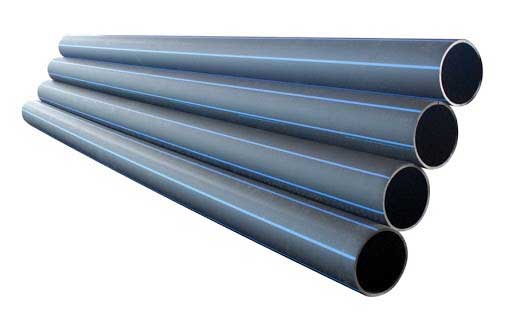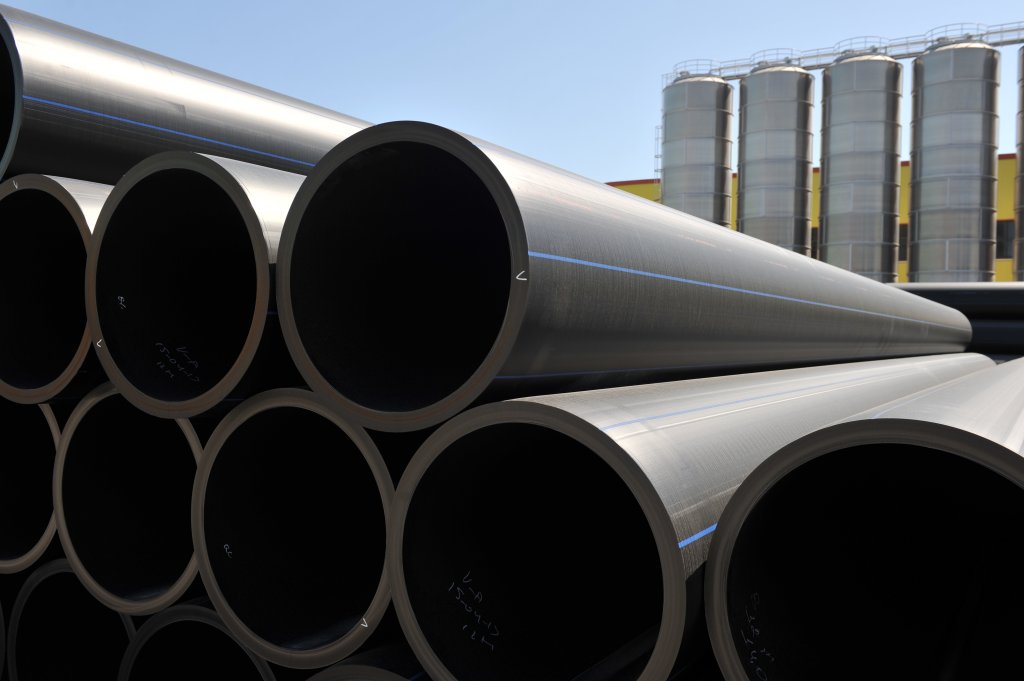Exploring American Plastics HDPE Pipe Manufacturing and Its Impact in Modern Infrastructure
A Comprehensive Guide to the Various Uses of HDPE Pipe in Building and Market
HDPE pipes have actually emerged as a critical part in contemporary building and industrial applications. Their one-of-a-kind buildings, such as resistance to rust and lightweight design, make them appropriate for a large range of uses. From water supply systems to farming irrigation, HDPE pipelines use solutions that improve performance and sustainability. Recognizing their varied applications is vital for specialists aiming to maximize framework. What particular advantages do these pipes give each field?
Water Supply and Circulation Systems
Water system and circulation systems are crucial components of metropolitan infrastructure, typically relying upon high-density polyethylene (HDPE) pipelines for their durability and effectiveness. These systems transportation potable water from treatment centers to customers, ensuring accessibility and safety. HDPE pipes are preferred for their resistance to rust, chemicals, and severe temperatures, which boosts their longevity and minimizes maintenance costs. Furthermore, their lightweight nature enables for easier installation and transportation, making them optimal for various metropolitan and country applications.
The adaptability of HDPE pipelines allows them to be set up in limited areas and around barriers, reducing the need for considerable excavation (custom hdpe pipe manufacturing Midland TX). Additionally, their smooth interior surface lowers friction losses, improving water circulation rates. As cities continue to expand, the need for reputable water supply systems boosts, placing HDPE pipes as a sustainable service for modern-day facilities jobs. Their tested performance history makes them a recommended selection amongst designers and city organizers alike
Wastewater Management and Treatment
Reliable wastewater monitoring and therapy are crucial for maintaining public health and wellness and environmental high quality. HDPE pipelines play a vital duty in this procedure because of their toughness, resistance to deterioration, and capacity to endure severe chemicals. These pipes are typically made use of in various applications, consisting of sewer system, stormwater water drainage, and wastewater treatment facilities. Their lightweight nature facilitates much easier setup and transportation, minimizing labor costs and time.
Furthermore, HDPE pipes have a smooth indoor surface that minimizes rubbing loss, advertising reliable flow rates. They are likewise much less vulnerable to leakages and failures compared to conventional products, guaranteeing that impurities are contained successfully. Their flexibility allows for adaptability in different dirt conditions, making them ideal for varied environmental setups. As sectors progressively focus on lasting practices, using HDPE pipes in wastewater monitoring systems straightens with objectives for lowering environmental effect and enhancing resource recovery.
Agricultural Irrigation Solutions
In agricultural setups, effective watering services are crucial for optimizing plant returns and managing water resources. HDPE (High-Density Polyethylene) pipes play a vital role in modern-day irrigation systems because of their toughness, versatility, and resistance to deterioration. Their ability to hold up against high stress makes them suitable for both surface area and subsurface irrigation applications, making certain uniform water circulation across areas.
Farmers can utilize HDPE pipelines in drip irrigation systems, which provide water directly to plant roots, lessening waste and advertising healthy growth. Furthermore, these pipelines are lightweight and easy to mount, lowering labor expenses and setup time. Their long life expectancy and low upkeep requirements even more boost their allure in agricultural practices.
In addition, HDPE pipes are eco pleasant, as they can be reused and do not leach hazardous chemicals into the dirt. This makes them a sustainable option for farmers intending to take on environmentally friendly agricultural methods while taking full advantage of performance.
Industrial Applications and Processes
Convenience is a trademark of HDPE pipelines, making them indispensable in numerous industrial applications and processes. These pipelines are widely utilized more in chemical handling sectors as a result of their outstanding resistance to a large range of harsh compounds. HDPE's lightweight nature, integrated with high tensile toughness, permits very easy installment and lasting performance in demanding atmospheres.
In the oil and gas industry, HDPE pipelines play a vital duty in moving hydrocarbons and gases, thanks to their resilience and versatility - Pipe Supplier American Plastics Midland. Additionally, they are utilized in mining operations for the transport of slurry and other materials, where standard piping systems might fall short
HDPE pipelines are significantly utilized in producing facilities for water supply lines and wastewater hydraulic hose clamps monitoring. Their ability to hold up against extreme temperature levels and stress makes them appropriate for a range of industrial processes. Overall, HDPE pipes add significantly to efficiency and safety and security throughout varied industrial applications.
Stormwater Administration and Drain Equipments
Stormwater monitoring and water drainage systems are vital elements in metropolitan facilities, designed to manage excess rains and minimize flooding risks. High-density polyethylene (HDPE) pipes are significantly used in these systems because of their longevity, adaptability, and resistance to deterioration. These pipelines efficiently transport stormwater away from populated locations, lessening surface drainage and avoiding waterlogging.
HDPE's lightweight nature promotes simpler installation, reducing labor expenses and building and construction time. Additionally, its resistance to chemicals and environmental stress factors guarantees longevity and integrity in numerous environments. In enhancement to standard drainage applications, HDPE pipelines are also utilized in innovative solutions such as environment-friendly framework, that includes rain gardens and permeable pavements.

Regularly Asked Inquiries
How Does HDPE Pipe Compare to PVC Pipeline in Price?
Generally, HDPE pipeline tends to be extra expensive than PVC pipeline due to its boosted resilience and versatility. Nevertheless, long-term price factors to consider, such as upkeep and life-span, may prefer HDPE in certain applications.

What Is the Lifespan of HDPE Pipeline Under Numerous Conditions?
HDPE pipelines typically have a lifespan of 50 to 100 years, depending upon ecological problems, installation methods, and use. Factors such as temperature, dirt kind, and direct exposure to chemicals can significantly influence their sturdiness.
Can HDPE Piping Be Recycled After Usage?
Yes, HDPE reducing tee pipes can be reused after use. The reusing process entails melting down the product, enabling it to be repurposed into new products, thus promoting sustainability and reducing ecological effect connected with plastic waste.
Are There Any Specific Installation Obstacles With HDPE Pipelines?
Installation challenges with HDPE pipes include correct jointing strategies, ensuring sufficient trench problems, and handling thermal growth. Additionally, proficient labor is required to manage specific devices, which can make complex the installment process in various atmospheres.

What Qualifications Should I Try To Find When Getting HDPE Pipelines?
When acquiring HDPE pipes, one must try to find certifications such as ASTM, AASHTO, and ISO, which validate high quality and compliance with market requirements, assuring sturdiness and efficiency in different applications. - Pipe Manufacturing Midland TX